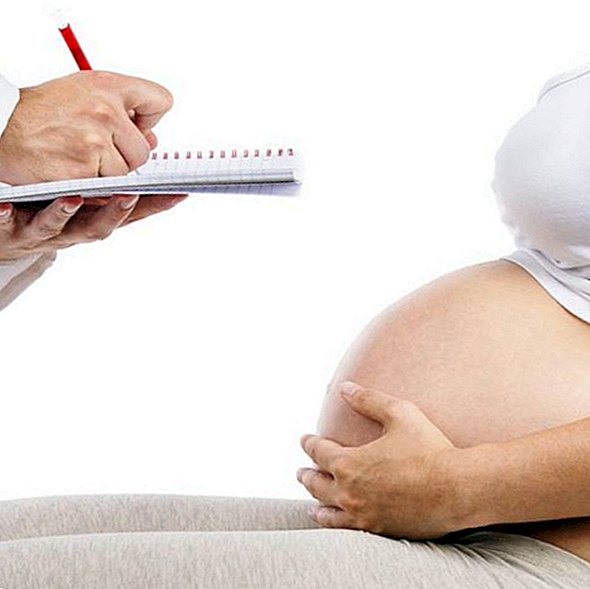Treat toxoplasmosis in pregnancy

Every second person becomes infected with toxoplasmosis during his lifetime. This can be completely symptomless. However, it becomes dangerous if there is a weakened immune system or a pregnancy.
What is toxoplasmosis and how does it spread?
This infectious disease is caused by parasites. The main host for the so-called Toxoplasma gondii, are cats. Their feces carry the parasite in the form of oocysts into the environment: soil and sand can be contaminated.
Toxoplasma survive weather-independent years in the earth. In the next step livestock or humans can take up the pathogen by remnants of Katzenkot. This happens through infected food (such as unwashed fruit or vegetables) or gardening. For the animal disease toxoplasmosis, humans occur only as an intermediate host. Often, the disease is asymptomatic and is therefore hardly noticed. But it can also lead to flu-like symptoms with fever.
Toxoplasmosis in pregnant women and people with weakened immune systems
A primary infection with the parasite can have serious consequencesFor example, a specific type of pneumonia may occur in debilitated patients. This is accompanied by fever, cough and shortness of breath as symptoms.
In addition, reactivation of the initial infection may occur. Then the brain is affected (cerebral toxoplasmosis). An inflammation of the affected brain region then leads to corresponding failures. Paralyzes, cramps or blurred vision are symptoms of toxoplasmosis infection. Left untreated, the parasite continues to spread and can affect many organs.
Dangerous for the unborn child
Toxoplasmosis in pregnancy is dangerous: In pregnant women, the parasite can pass through the placenta to the baby. According to Robert Koch Institute (rki) increases the likelihood of transmission with duration of pregnancy, but the severity of the disease in the child. The transfer rate increases from about 15 percent in the first trimester to about 60 percent in the last trimester.
Miscarriage and consequential damage from toxoplasmosis in pregnancy
Around 1,500 children are born each year with consequential damage. An early toxoplasmosis infection, if left untreated, can seriously harm the unborn child or even lead to a miscarriage during pregnancy. The consequences can be blindness, the so-called hydrocephalus or other malformations. Babies who become infected in the womb from the second trimester of pregnancy can be born symptom-free, but then become ill after years of so-called congenital toxoplasmosis. Developmental delays or seizures then occur. But also blindness or damage of the central nervous system can occur. Children with congenital toxoplasmosis can also remain mentally retarded. Therefore, it is important to prevent toxoplasmosis in pregnancy and to treat it quickly in case of infection.
Diagnosis of infectious disease
The safest type of diagnosis is a test for antibodies. Blood is taken and examined for toxoplasmosis antibodies. If the mother is immune, it is also the embryo. In pregnant women, this examination is repeated regularly during pregnancy. This is important because you can always become ignorant of toxoplasmosis. However, the test is voluntary and we are not always paid by any health insurance company. In addition, ultrasound examinations and an umbilical cord puncture can provide information about toxoplasmosis in pregnancy and consequences of this. In any case, early detection and treatment of primary infection in pregnant women is important.
Treatment with pyrimethamine and sulfadiazine
Therapy is only necessary if it can cause discomfort or danger to high-risk groups (pregnant and immunodeficient). Then antibiotics are used. The active ingredients are called Pyrimethamine and sulfadiazine, they kill off the parasites and thus prevent the spread. Pregnant women also receive folic acid to strengthen the bone marrow of the unborn baby. If a baby is born with a toxoplasmosis infection, it will also get antibiotics to avoid long-term consequences.
Prevention of toxoplasmosis in pregnancy
It is important to safely treat potentially contaminated with the pathogen before consumption!
Also note:
- Fruit, vegetables and salad should be thoroughly cleaned before consumption
- Meat and sausage should not be eaten raw, not even pink (absolutely durchgaren!),
- Please avoid tartare, salami, bloody steaks, sausage and carpaccio,
- only use raw gloves to process raw meat and thoroughly clean all kitchen equipment that has come into contact with it,
- Avoid contact with free-range cats and do not clean cat litter boxes / remove feces,
- wear gloves when gardening
- always wash your hands thoroughly.
The abandonment of raw milk products can also prevent.
More information about nutrition during pregnancy can be found in our article "What can I eat when I'm pregnant?" and the video "Eating during pregnancy: what is forbidden?".
And even after birth you can do good things for your stomach: "How do I care for my stomach after birth?".










